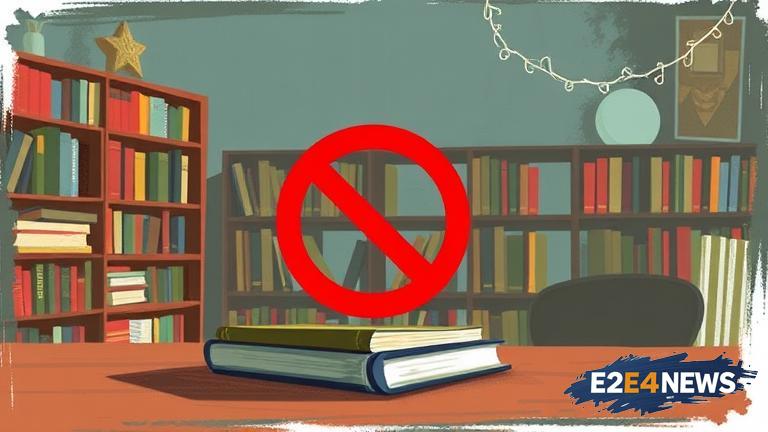A controversy is brewing in Harford County, Maryland, where a local advocacy group is expressing concerns over a proposed book ban. The group, which advocates for intellectual freedom and literacy, is speaking out against the ban, citing concerns over censorship and the potential impact on students’ access to information. The proposed ban targets several books that have been deemed objectionable by some community members, sparking a heated debate over the role of censorship in public education. Proponents of the ban argue that the books in question contain explicit content and are not suitable for young readers, while opponents argue that the ban is an overreach of authority and an attempt to stifle free speech. The advocacy group is urging community members to speak out against the ban, citing the importance of intellectual freedom and the need to protect students’ access to a wide range of literary works. The group argues that banning books is not an effective way to address concerns over explicit content, and that such measures can have unintended consequences, such as driving interest in the banned books and creating a culture of censorship. Instead, the group is advocating for a more nuanced approach, one that balances the need to protect students with the need to promote intellectual freedom and critical thinking. The controversy has sparked a wider debate over the role of censorship in public education, with some arguing that schools have a responsibility to protect students from explicit content, while others argue that such measures are an overreach of authority. The issue has also raised questions about the criteria used to determine which books are suitable for young readers, and whether such decisions should be made by educators, parents, or community members. As the debate continues, the advocacy group is urging community members to get involved and make their voices heard, arguing that the issue is not just about books, but about the values of intellectual freedom, critical thinking, and open inquiry. The group is also calling on educators and policymakers to take a more nuanced approach to addressing concerns over explicit content, one that balances the need to protect students with the need to promote intellectual freedom and literacy. In recent years, there has been a growing trend of book bans and challenges in schools across the United States, with some arguing that such measures are necessary to protect students, while others argue that they are an attempt to stifle free speech and promote censorship. The controversy in Harford County is just one example of this larger trend, and highlights the need for a more nuanced and thoughtful approach to addressing concerns over explicit content in public education. The advocacy group is committed to promoting intellectual freedom and literacy, and is urging community members to join them in speaking out against the proposed book ban. By working together, the group hopes to create a more inclusive and supportive learning environment, one that values critical thinking, open inquiry, and intellectual freedom. The controversy has also sparked a wider conversation about the importance of diversity and representation in literature, with some arguing that the proposed ban is an attempt to suppress diverse voices and perspectives. The advocacy group is urging community members to consider the potential impact of the ban on students from diverse backgrounds, and to speak out against any measures that may be seen as discriminatory or exclusionary.
